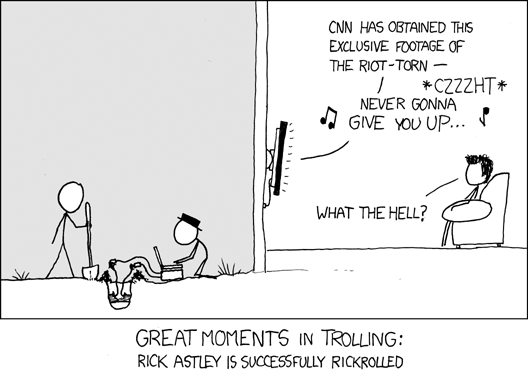OK, so I've had a couple of questions for myself recently and since Professors said that I should publish this random musing of a post I shall.
Why am I writing? What am I writing about? Do I really care about what I am saying? How am I making a digital fingerprint in life? Does making a digital fingerprint even matter for what is most important to me?
As I've perused my previous postings I have discovered some things...
1. I seem to have a psychological need to relate everything to science
2. My grammar needs a little more work to be professional grade.
3. I'm rather optimistic about the new possibilities available to us via new technology and such
4. I don't have any idea what my theme actually is.
Those discoveries aside, what am I actually interested in?
Is it open science? Studying how many different scientists can get together to accomplish more through cooperation. It intrigues me, but I'm still not sold on it.
Is it interconnections? Is is how life, the universe, and everything is connected via thousands of connections kind-of like own own biosystems? I have always been interested in understanding hw tying all of your subjects together would be a way of helping you learn better.
Is it the future? Well, I'm obviously interested in the future just about as much as everyone else, but it's not enough for me to write about the future... maybe in a creative writing blog or sommat.
But when I re-looked at my blogs I noticed an interesting little tendril of a underlying theme there... how action and more importantly participation improves life in general. I'll now have to get to work and beat the apathy out of my system, because as I treat this as a class assignment that no one will ever return to I become apathetic and don't care about what I am writing.
And it's like that with life, if you are posed with a problem that doesn't seem to make a difference if you solve it or just let it be. I want to look more into the benefits of participation, especially with the sciences because regular sciences do not allow for the general populace to take part, or even understand. I want to work on how science and technology can be made more open to the general populace to help them decrease their apathy towards life in general. Maybe I can awake the sheeple and help them become the future scientists of tomorrow.
 I'm currently in a History of Microbiology class where I have the fun opportunity to learn where all the science I have been studying for the last couple of years has come from. One of the most interesting things I have noticed, not that we are studying the later microbiologists is how little is known about them.
I'm currently in a History of Microbiology class where I have the fun opportunity to learn where all the science I have been studying for the last couple of years has come from. One of the most interesting things I have noticed, not that we are studying the later microbiologists is how little is known about them.


